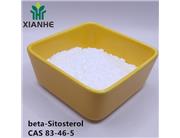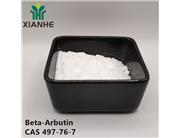Introduction to Beta-Carotene
Definition:
Beta-carotene is a naturally occurring carotenoid, a pigment found in various fruits and vegetables, particularly those with orange, yellow, and green hues. It is a precursor to vitamin A and plays an essential role in human health.
Functions:
· Antioxidant: Beta-carotene acts as a powerful antioxidant, neutralizing free radicals and reducing oxidative stress, which helps prevent cell damage.
· Vision Support: As a precursor to vitamin A, beta-carotene is essential for maintaining healthy vision, particularly in low-light conditions.
· Immune System Support: It supports immune health by promoting the function of white blood cells and protecting against infections.
· Skin Health: Beta-carotene helps maintain healthy skin, protecting it from UV damage and promoting a youthful appearance.
Applications:
· Nutraceuticals: Beta-carotene is commonly included in dietary supplements aimed at supporting vision, immune function, and overall antioxidant health.
· Cosmetics & Skincare: Due to its antioxidant and skin-protecting properties, beta-carotene is used in skincare products, particularly in anti-aging creams and sunscreens.
· Functional Foods & Beverages: Beta-carotene is often added to functional foods and beverages, providing health benefits, including antioxidant support and vitamin A production.
· Food Industry: It is used as a natural food colorant, giving products an orange or yellow hue while offering nutritional benefits.


 China
China

